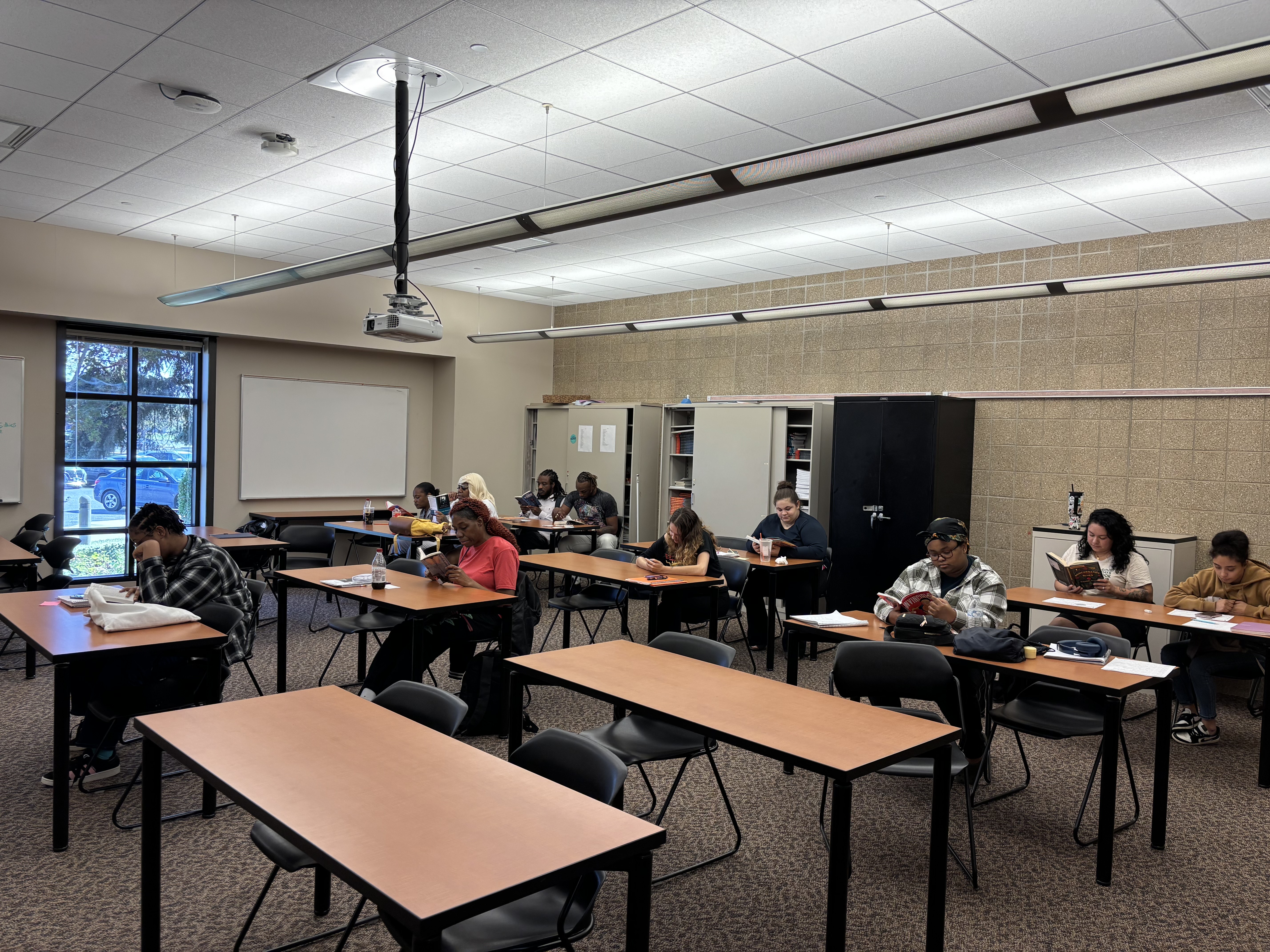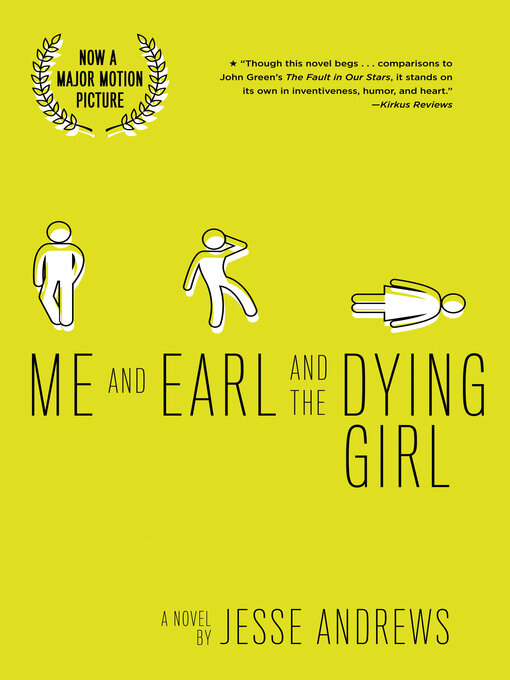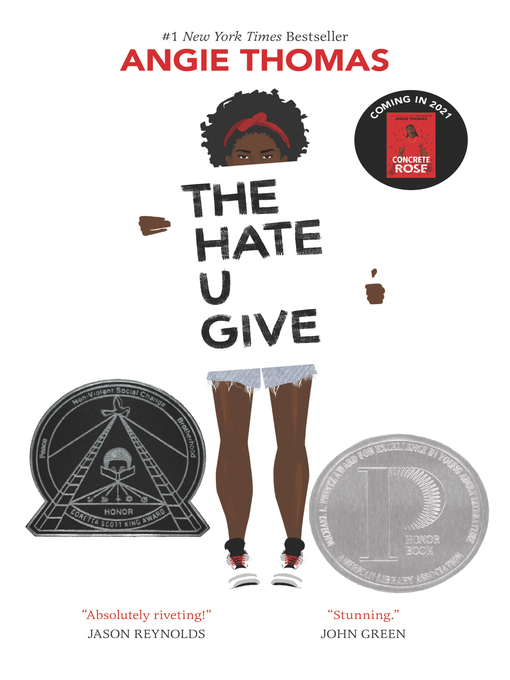The PSC Library is open M-W 8am-7:00pm and Th-F 8am-4:30pm. PSC Librarians are available through the "Chat Now" button or via email at librarians@prairiestate.edu.

Save the date for a Halloween Themed Game Night on Monday, October 27th from 5:00 - 7:00 PM in the library classroom. This event is free and open to all students.
In the meantime, the library has been working with Amie Bernstein Clark in Student Engagement & First Year Experience to create a book display for National Voter Education Week. We decided to focus on the theme of leadership since students can gain experience right now in student clubs. This book display will be up until October 10th.
The library has thousands of subscriptions to peer reviewed journals, newspapers, and magazines. These are all free to you with your PSC user name and login. We strive to have subscriptions to everything that you need, within the constraints of our budget. While I can’t list every journal that we have access to in this short blurb, I will highlight a few you might not know you can access.
Community College Journal of Research and Practice
“The Community College Journal of Research and Practice (CCJRP) is a peer-review journal that promotes and disseminates an increased awareness of community college issues.” “A refereed, scholarly journal of original articles on both the theoretical and practical aspects of community college education in the areas of administration and management, changing technology, instruction, programming and curriculum and student needs.”Journal of College Student Retention: Research, Theory & Practice
“The Journal of College Student Retention: Research, Theory & Practice (CSR) provides the educational community, federal and state governmental officials, and the general public a medium to exhibit and explore the complex issue of student retention and attrition.”This semester the library is trying a new program with Adult Education. To encourage her students to read more, Laura Willows in Adult Education wanted to give her students distraction free, dedicated reading time. Laura and Valerie met many times to create a curated list of titles she thought would appeal to her students. Most were already available in the library. Thane ordered any additional copies, or new titles. Then CJ did some backend wizardry, and he pulled and organized all the titles on a cart to get it ready. The cart is now sitting in the ATOC and being enjoyed.
The students are being surveyed a few times during the semester to measure the effectiveness of the program. The learning objective is that students will gain reading agency (and hopefully enjoyment?) from independent reading of a curated collection of library books. We define "reading agency" as students being able to direct their own reading, selecting titles and subject matter that speaks to their lived experiences and interests. Early survey results are positive, but we have yet to determine if we met our objective.

An image of PSC Adult Education students during their dedicated reading time. This image was shared with their permission.
By Valerie Moore, Outreach and Engagement Librarian, Professor
This year’s Banned Books Week will be celebrated from October 5th - 11th. The library will showcase a month-long book display, with a preview of the ebooks below. Banned Books Week celebrates your right to read, but fits into a larger and timely discussion about censorship.
What is Banned Books Week?
Banned books week is best described by the ALA’s (American Library Association) Office for Intellectual Freedom website, which says,
“Banned Books Week was launched in 1982 in response to a sudden surge in the number of challenges to books in libraries, bookstores, and schools. Held in the last week of September or first week of October, the annual event highlights the value of free and open access to information and brings together the entire book community — librarians, educators, authors, publishers, booksellers, and readers of all types — in shared support of the freedom to seek and to express ideas.”
Just so that we understand one another, let’s define our terms.
Challenged book
A book is challenged when a pressure group, school board, administration, or individual asks for a book to be removed from the collection. Pressure groups are well organized, and “Nearly 72% of censorship attempts in 2024 were initiated by pressure groups and decision makers who have been swayed by them.”
Banned book
A book is banned if it is actually removed from the collection. This means a book can be challenged, but not banned.
Weeding/Deaccessioning
Librarians do remove items from the collection as part of typical maintenance in a process called deaccessioning or weeding. Our library has a collection development policy that dictates what is kept, donated, and if damaged- discarded. These decisions aren’t made haphazardly and are always done to ensure our patrons have the items they most need.
Why should I care about Banned Books Week?
Banned Books Week celebrates your right to read whatever you want. We know that not everyone can afford to buy reading materials. Libraries can bridge this gap, but only if they actually have the book. Gone are the days of bookstores in malls, and brick and mortar book stores tend to be only in wealthier areas. Plus, even if you have a store, you still need money and transportation. This means many children can only access books on their own through a school library.
Banned Books Week is also a First Amendment issue since the right to read has been tied to your right to freedom of speech and expression. A writer can express themselves freely, and you have the right to read it. In spite of this, right now, histories, ideas, and individuals are also being erased. Books can preserve this history, which is why we will highlight these books for the month of October.
What can I do?
If you don’t personally want to read a book, or think something isn’t right for your own child, that’s just fine. For example, my child is very sensitive, and has yet to make it through a full movie without having to skip certain scenes. However, we are not demanding that all scary scenes be removed from movies. We don’t have a right to make a blanket decision for our community, or her school. The first thing you can do is not be part of the problem.
Support your librarians by using your library! Get a library card. Use the collection. This adds to our circulation statistics and shows our value. Vote in favor of taxes that support your local public library. Join a friends of the library board for fundraising. Advocate for the value of libraries when “everything is on Google.” (It’s not, but that’s a different water cooler.) Librarians have at least one master’s degree, so trust that we understand what materials are suitable for our patrons.
Pressure groups are well organized, and sometimes attend school board and library board meetings. However, you can also go to these meetings. Vote in local elections for board members who will fight book bans. You can even run for a board position yourself. Remember that your annoying PTA president is probably just as qualified as you, but they ran, and you didn’t.
Read banned books yourself. Sometimes it can be shocking to hear cherry-picked quotes or see pictures devoid of context. Books have historically portrayed all kinds of acts of violence, such as sexual assault, war, racism, and murder since these reflect acts that happen outside their pages. Books didn’t invent violence, but it does reflect the reality of many readers.
Finally, Illinois banned book bannings in 2023, but this doesn’t mean that challenges won’t occur, or even bannings. If you hear of a challenge or banning, please report it to the American Library Association’s Office of Intellectual Freedom through their online form.
As promised, here are the ebooks for our Banned Books Week display. Stop by the library through the month of October to check out your favorite maligned text, or see an ebook preview below.
 Me and Earl and the Dying GirlJesse AndrewsChallenged for: claimed sexually explicit, profanity |
The Perks of Being a WallflowerStephen ChboskyChallenged for: claimed sexually explicit, LGBTQIA+ content, depiction of sexual assault, depiction of drug use, profanity |
The Hunger GamesSuzanne CollinsChallenged for: claimed religious viewpoint, unsuited to age group |
 SpeakLaurie Halse AndersonChallenged for: claimed political viewpoint and it was claimed to be biased against male students, rape and profanity |
 The Kite RunnerKhaled HosseiniChallenged for: claimed sexual violence and was thought to “lead to terrorism” and “promote Islam.” |
 The Hate U GiveAngie ThomasChallenged for: claimed profanity, violence, and because it was thought to promote an anti-police message and indoctrination of a social agenda |
Lastly, the library is here for you; reach out with any questions at Ask a Librarian!